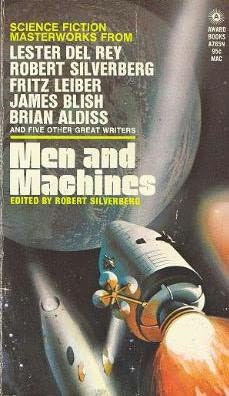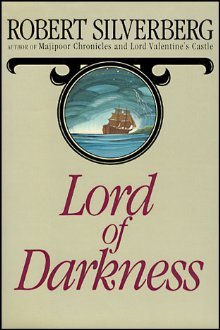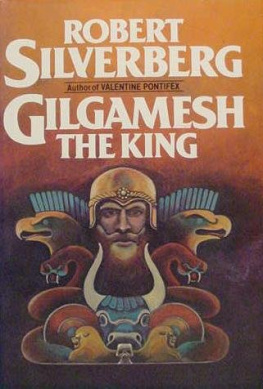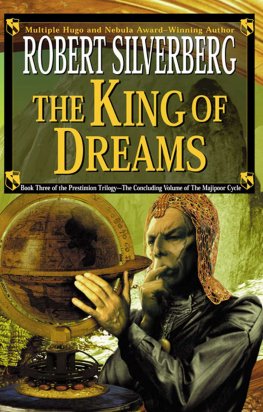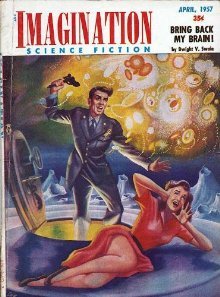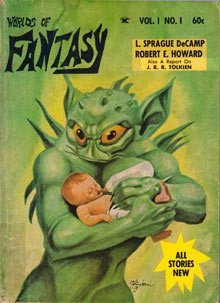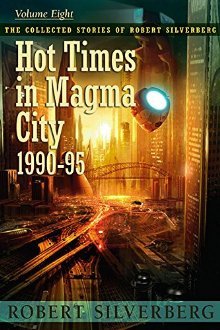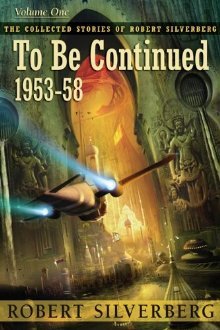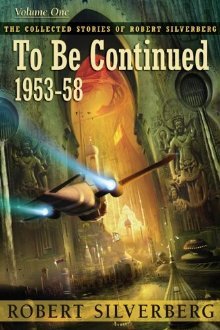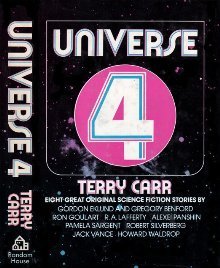Robert Silverberg - Men and Machines Anthology
Here you can read online Robert Silverberg - Men and Machines Anthology full text of the book (entire story) in english for free. Download pdf and epub, get meaning, cover and reviews about this ebook. genre: Detective and thriller. Description of the work, (preface) as well as reviews are available. Best literature library LitArk.com created for fans of good reading and offers a wide selection of genres:
Romance novel
Science fiction
Adventure
Detective
Science
History
Home and family
Prose
Art
Politics
Computer
Non-fiction
Religion
Business
Children
Humor
Choose a favorite category and find really read worthwhile books. Enjoy immersion in the world of imagination, feel the emotions of the characters or learn something new for yourself, make an fascinating discovery.
- Book:Men and Machines Anthology
- Author:
- Genre:
- Rating:3 / 5
- Favourites:Add to favourites
- Your mark:
- 60
- 1
- 2
- 3
- 4
- 5
Men and Machines Anthology: summary, description and annotation
We offer to read an annotation, description, summary or preface (depends on what the author of the book "Men and Machines Anthology" wrote himself). If you haven't found the necessary information about the book — write in the comments, we will try to find it.
Men and Machines Anthology — read online for free the complete book (whole text) full work
Below is the text of the book, divided by pages. System saving the place of the last page read, allows you to conveniently read the book "Men and Machines Anthology" online for free, without having to search again every time where you left off. Put a bookmark, and you can go to the page where you finished reading at any time.
Font size:
Interval:
Bookmark:
Men andMachines (Anthology)
RobertSilverberg
ASIN: B002M3CRCC
INTRODUCTION
The firstman to use a machine was the first of our primitive ancestors who picked up arock to hurl at some passing animal or to crack open some edible nut. In themillion-plus years since then, our machines have grown much more complex, buteven in our modern era of computers, rockets, and color television, theirbasic purpose remains the same: to serve man.
Whetherour machines truly serve us is a question much debated by science-fictionwriters and other professional speculative philosophers. Does some essentialquality go out of human life when it becomes too easy? Have our automobiles,telephones, typewriters, and elevators sapped our vigor? Are we speeding intoflabby decay because we have made things too easy for ourselves?
And asour machines grow more able, when do they cross the boundary that separates theliving from the unliving ? Is it possible that we arebuilding machines that will make humanity obsolete? Perhaps the day is comingwhen we ourselves will be rendered unnecessary, and our sleek successors,creatures of metal and plastic, will inherit the earth.
Therelationship between man and his machines is a complex and many-sided one,compounded by love and hate. Many a bitter attack on the encroachments of themachine age has been produced by a writer using an electric typewriter in anair-conditioned room, innocently unaware of the inner contradictions involved.We need our machines, but we fear them; and out of this tension come ideas bestdealt with in the guise of science fiction.
Ten science-fictionalexplorations of the man-machine relationship are offered here. Some arelighthearted excursions into fantasy, others bleak and forlorn visions of ahopeless future. They show man as the master and as the slave of his machines,as the victim and the tyrant, as conqueror and as conquered. No sermons areintended: the purpose of these tales is to entertain, to stimulate, to suggestpossibilities. But implicit in them is the awareness that we have only begunto cope with the problems that our age of fabulous machines is creating.
R.S.
COUNTER FOIL
BY GEORGE O. SMITH
Wesometimes used to be reminded how dependent we have become on our machines.A substantial part of the northeast United Statesreceived such a reminder one November evening in 1965, when a triflingtechnical difficulty blotted out lights and power for 30,000,000 peopleover a vast area. George O. Smith's story, writtenbefore the great power failure, shows the even more devastating possibilitiesin a transportation breakdown . Ofcourse, the transportation system he describes is one that doesn 'tyet happen to be in usebut allow him that one bit offantasy and everything else follows with devilishly consistent logic.
George O.Smith has long been well known as a devilishly logical character anyway. Anengineer by trade who has been involved in military electronics research, hehas been writing s-f since 1942 and has published over one hundred stories. Agood many of them deal with the technical problems engineers of the future arelikely to encounter, and are impressive both for their insight intotechnological processes and for the sly, lively wit that makes them favoriteseven of nontechnical readers.
It wasnear the close of a normal day in late July, if a day in late July can properlybe called normal. The temperature and the humidity were tied in themid-nineties; a reporter from the News fired the usual egg on the pavementwhile his photographer snapped the picture that would adorn tomorrow's frontpage. There had been three flying saucer sightings reported, and the Loch Nessmonster had made his appearance right on schedule. The cases of heatprostration were running at par, and nerves in the un- airconditioned areas were fraying short. Still, the clock displayed hope as it crawled ontoward the end of the work day and promised freedom from bondage and the rightto pursue both internal and external liquid happiness.
Gertrude,the videophone receptionist, still looked crisp in her office. Her voice as sheresponded with the singysongy , "Tele- por -TRAN-sit," had not lost its lilt. But it wasobvious to the caller that Trudy sat in air-conditioned splendor. And eithershe loathed the idea of leaving her comfort and going home, or she despised himwho called. For after the lilting greeting, her voice dropped to a flat,"Oh, it's you again."
JohnnyPeters smiled. "Show?"
"No."
"Swim?"
"No."
"Dinner?"
"No."
"Nothing?"
"Nothing!"
"Trudy,I'm not poison, you know."
"Johnny,I know you're not poison. But you're not very ambitious, either."
"Nowlisten," he said sharply, "I'm only asking for a date. I'm notoffering to have you share my frugal life, bed, and board as a lowlytechnician. A date I can afford; a wife I can't."
"Youcould try to get ahead."
"I'vemade my bid. I asked my illustrious leader for advanced training and anaccelerated course so I could move along faster, and he said that moving toofast was bad for a young man. Shall I quit now and go elsewhere?"
"Wherewould you go?"
"That'sthe trouble, Trudy. I majored in teleportonics , andit's either teleportonics or I go back to school andstart something new. Think the boss-man will move me faster in Greater Chicago?I doubt it. So I might as well stay right here in Megapolis ."
"Isuppose you're right."
"Allright, let's start over again. Show?"
"Johnny,not tonight. I'm busy."
" Tomorrow?"
"Ifwe're not all cooked by then. Call me, Johnny." "Willdo," he said with a growing smile.
JohnnyPeters broke the connection and checked his instrument panel. The primary powerline from Con Edison was running a tenth of a voltlow; with bored, routine gesture he twitched a knob, watched the voltage rise,and then he settled back with little more to do until the end of his shift ofduty.
In thedistant reaches of the city, the uneasy slumber of a napping woman was brokenby a wave of pain. A gush of body-warm wetness brought a flash of things tomind that came and went as fast as thought, far too rapidly to reproduce in anyelectromechanical medium of expression. She thought, in turn: It was herfirstborn. The doctor said there was little point in predicting the arrival ofa firstborn because they had no record upon which to base an estimate. Thewomen in her family were prone to deliver in taxicabs and ambulances on the wayto the hospital.
A secondwave of pain assailed her, interrupting the rapid flow of thought. Then as thepain subsided, she went on: That was fast!
Shestruggled to her feet and duckwalked heavily on herheels to the videophone. She pressed the button for one of the stored-programnumbers and immediately a crisp, cool voice responded,"Tele-port-TRAN-sit," in the lilt with all four clear tones soundingin order.
"Trudy,this is Irma Fellowes. Can you connect me with Joe?"
"Surething. Half a mo' and you're on. How's things ?"
"Baby'son the way." The simple statement was emphasized by a smothered groan andthe grimace of pain on Irma Fellowes' face.
Trudygulped and lost her cool, crisp, composure. "Whoops! I'll give Joe thedouble-whammy ring."
The mutedwail of a siren came, and almost instantly the scene on the videophone switchedto a man, seated at his desk. His face was still changing to a look of puzzledconcern. He barked, "Where's the emergency and wha ... oh ! Irma. Wh ... er... ?"
"Baby'son the way, Joe."
"Fine,"he said. "Have you called Maternity?"
"Notyet."
"Irma,I can't do you any good at all. I appreciate the information, but it could havewaited until you got to the hospital."
"Joe!It's your child!"
"Sure.And you're my wife. Now buzz off here and call the hospital. Get going."
He hungup; reluctantly because he hated the harshness of the act, but deliberatelybecause it was the only way he could get her to move in the right direction.
Next pageFont size:
Interval:
Bookmark:
Similar books «Men and Machines Anthology»
Look at similar books to Men and Machines Anthology. We have selected literature similar in name and meaning in the hope of providing readers with more options to find new, interesting, not yet read works.
Discussion, reviews of the book Men and Machines Anthology and just readers' own opinions. Leave your comments, write what you think about the work, its meaning or the main characters. Specify what exactly you liked and what you didn't like, and why you think so.

